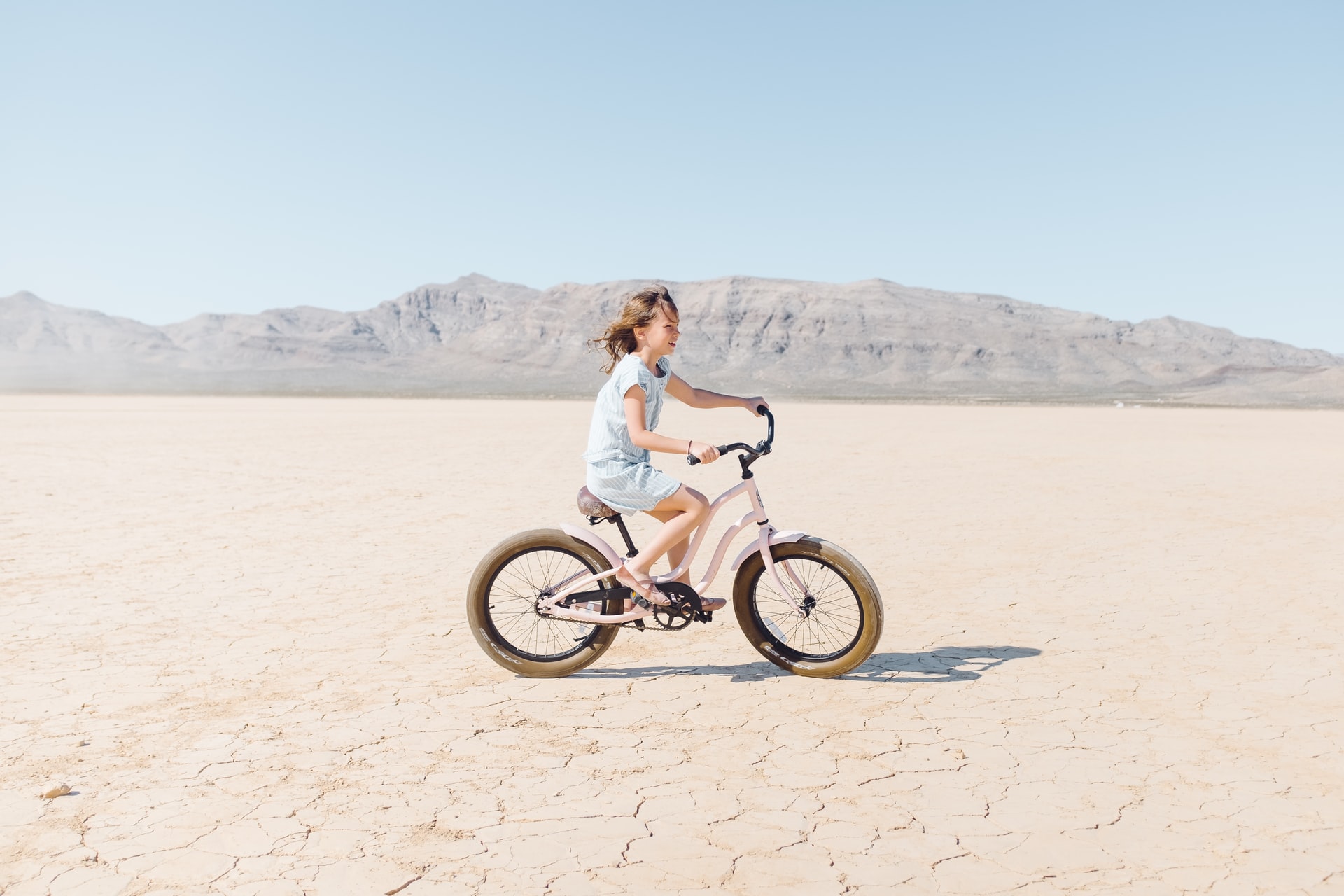Free-range kids: Why a child’s freedom to travel and play without adult supervision matters

A decline in children’s physical activity isn’t a new trend. However, with COVID-19, there has been further decline in physical activity resulting from public health protocols aimed at curbing the spread of the virus. (File photo: NeONBRAND/Unsplash)
The recently released 2020 ParticipACTION Report Card revealed that Canadian children scored a D+ for “daily physical activity,” an F for “active play” and a D- for “active transportation.” Only 39 per cent of Canadian children and youth achieve recommended physical activity levels.
A decline in children’s physical activity isn’t a new trend. However, with COVID-19, there has been further decline in physical activity resulting from public health protocols aimed at curbing the spread of the virus.
COVID-19 has resulted in major disruptions of everyday life including school, playground and park closures that have also limited where children can play, be active and be in nature.
Kids’ mobility
We study children’s independent mobility — a child’s freedom to travel and play in their neighbourhood without adult supervision. During the pandemic, children’s independent mobility may be more essential than ever before.
Independent mobility provides children with many opportunities to experience their environment. Children with the freedom to travel independently are more physically active. However, independent mobility also provides a variety of mental health and developmental benefits including improved risk assessment, higher self-confidence and better wayfinding skills.
The opportunity to travel solo or with friends allows children to develop better decision-making skills. They gain the competence to navigate their environment safely and react appropriately to unexpected occurrences like getting lost. Parents who allow their children independent mobility are giving them confidence to navigate the world on their own.
In the current pandemic, independent mobility may help children gain access to the outside world. With many parents working from home, children’s outdoor time may be inextricably linked to when parents have time to join physical activity outdoors after work or between meetings.
Different amounts of space, mobility
Not all children have access to a back yard at home and may be limited in their opportunities to be active. Independently mobile children have more chances to be active by walking or biking (or rollerblading, skateboarding or scootering) to various locations close to home like the local park, schoolyard or up and down the neighbourhood block.
Our research highlights that not all children have the same amount of independent mobility. For example, we found in a survey of about 1,700 parents in Vancouver, Ottawa and Trois-Rivières, Que., that car ownership had negative influences on children’s independent mobility. So did language spoken at home besides English or French. Language spoken at home may reflect social and cultural norms, which may affect independent mobility by influencing parental decision-making.
Other research has noted that independent mobility is sometimes higher in lower socio-economic neighbourhoods due to differences in social norms and parenting styles. How independent mobility can be supported for children with a disability is less certain without adequate infrastructure.
Lower COVID-19 risk outdoors
Our understanding of COVID-19 is rapidly changing and uncertainty about risk to our children is stressful. British Columbia has now entered Phase 2 of its restart plan and one outcome is reopening of parks, beaches and playgrounds.
The Canadian Pediatric Society notes in an April 29 report that “the major risk factor for acquiring COVID-19 infection in childhood is household exposure,” or contracting it in shared living quarters. It’s less risky to be outdoors than indoors if physical distancing is maintained.
To support physical distancing, cities around the world are reallocating road space for walking and cycling, opening up green spaces and initiating car-free zones.
In Vancouver, the city council recently voted to reallocate a minimum of 11 per cent of city roads to “people-focused public space.”
In some places, local environments may be doing a better job than others at alleviating parental safety concerns about letting their kids go outside and play.
Building children’s independent mobility
Here are seven steps you can take to help your child and all children build their independent mobility.
Learn more about our research through our documentary, Running Free. Told through the eyes of three families, it explores the concept of children’s independent mobility, the benefits of independent mobility for physical and mental health. It challenges viewers to consider solutions to declining independent mobility levels.
Learn the COVID-19 restrictions in your area. Have conversations with your child about how to safely be outside while still following physical distancing and hygiene guidelines such as: no physical contact with others; remain two metres apart; wear a mask when going into stores; wash your hands regularly.
Engage with your children and your community to discuss and address barriers to children’s mobility. How do your children, and all children in your community, experience mobility? Learn about and support advocacy and planning for more inclusive communities that equitably support all children’s freedom of movement and play.
Start early. The more time your child spends in the neighbourhood with you, the more familiar they will be with the streets, neighbours and the environment. With you, your child can learn how to safely cross the street, ride their bike and overcome unexpected situations. As you are out and about, talk to your child about what they’d do if they got lost and how to ask for help or find their way.
Know your child. Each child is different in terms of maturity, confidence and where they live. There is no specific age when a child should be independently mobile. Parents and children should engage in conversations to determine when a child is ready to explore their neighbourhood without parental escort and help their child develop the skills to do so safely.
Build familiarity with your neighbourhood. It’s beneficial to know your neighbours, what locations are nearby such as green spaces, playgrounds or shops and who your child can ask for help should they need it. Is there a corner store where a child who is ready could take pride in practising appropriate hygiene, mask-wearing and physical distancing measures — and make a short trip to pick up an item?
Trial runs. Once you and your child have established their readiness, it’s time for trial runs! Start with baby steps. Walk or cycle with your child — it helps everyone become familiar with the neighbourhood and landmarks. Practise getting to various destinations with your child leading the way and crossing the road where it’s safest. Once familiar with the neighbourhood, your child can practice getting to various places alone or with sibling(s), the family dog, with a cell phone (or a walkie-talkie) or with a physically distant friend.
When children are outside, “they move more, sit less and play longer”, interact with the environment and apply their creativity. All of this is beneficial for their physical fitness, mental health and social development. Supporting children to be independently mobile may be an important solution in protecting children’s health and well-being.![]()
![]()
Negin Riazi, PhD Candidate in Kinesiology, University of British Columbia and Guy Faulkner, Chair in Applied Public Health and Professor, School of Kinesiology, Faculty of Education, University of British Columbia
This article is republished from The Conversation under a Creative Commons license. Read the original article.





















